COVID-19: Death Data in England – Update 29th April
April 29, 2020
Jason Oke, Carl Heneghan
NHS England releases data at 2 pm each day and reports daily count up to the previous day as well as a total figure. We wrote about the problems with reconciling the different data here:
Today’s reported figure is 445 deaths in hospitals in England. These deaths are distributed back to the 9th of March.
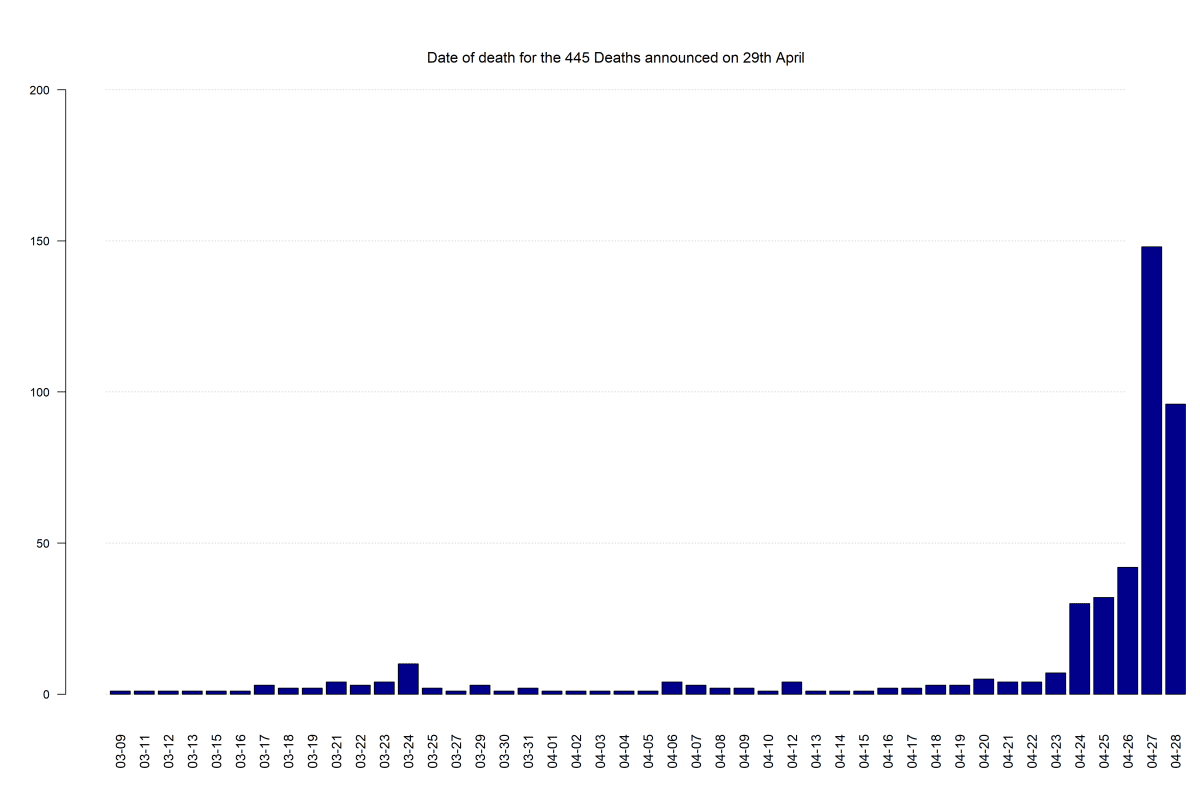 On the:
On the:
- 22nd April there were 665 deaths reported in hospitals in England.
- 15th April there were 651 deaths reported in hospitals in England.
Consistent with previous analyses, the peak day of deaths was the 8th of April. The deaths are distributed across the following days:
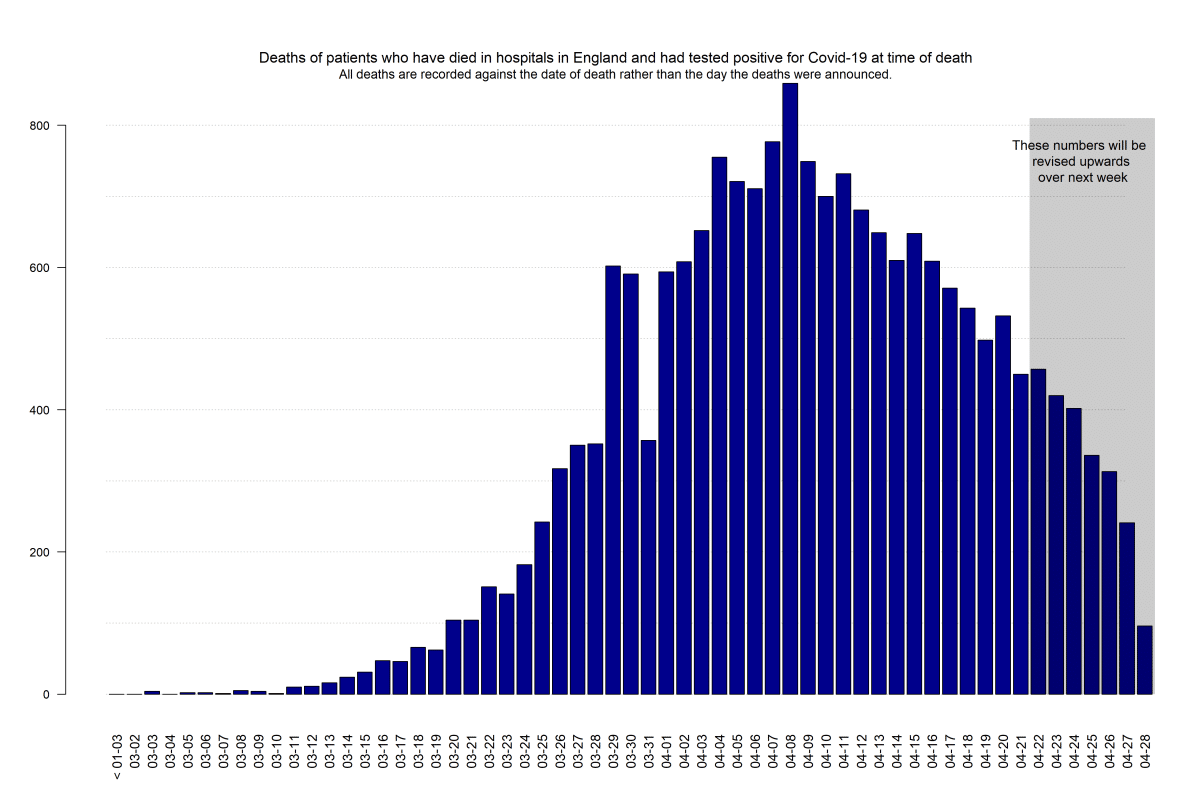
and are distributed by region as follows.
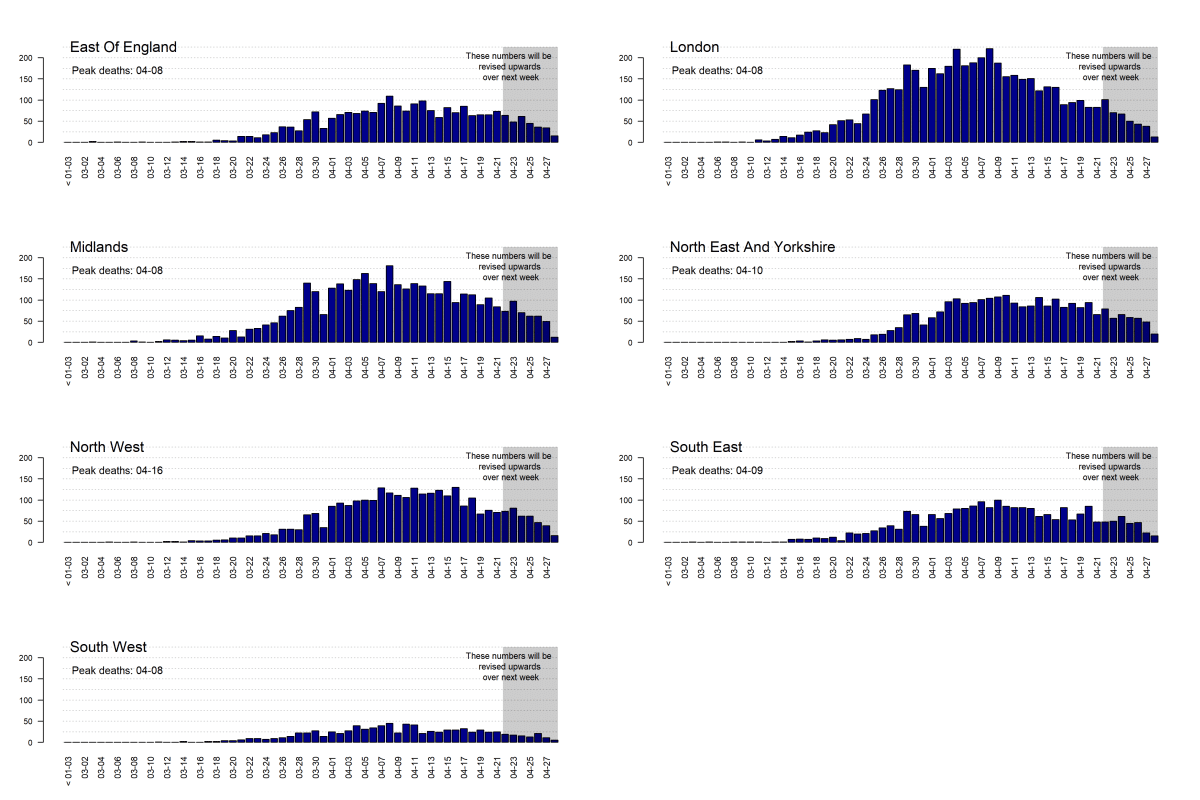
and by age, as follows:
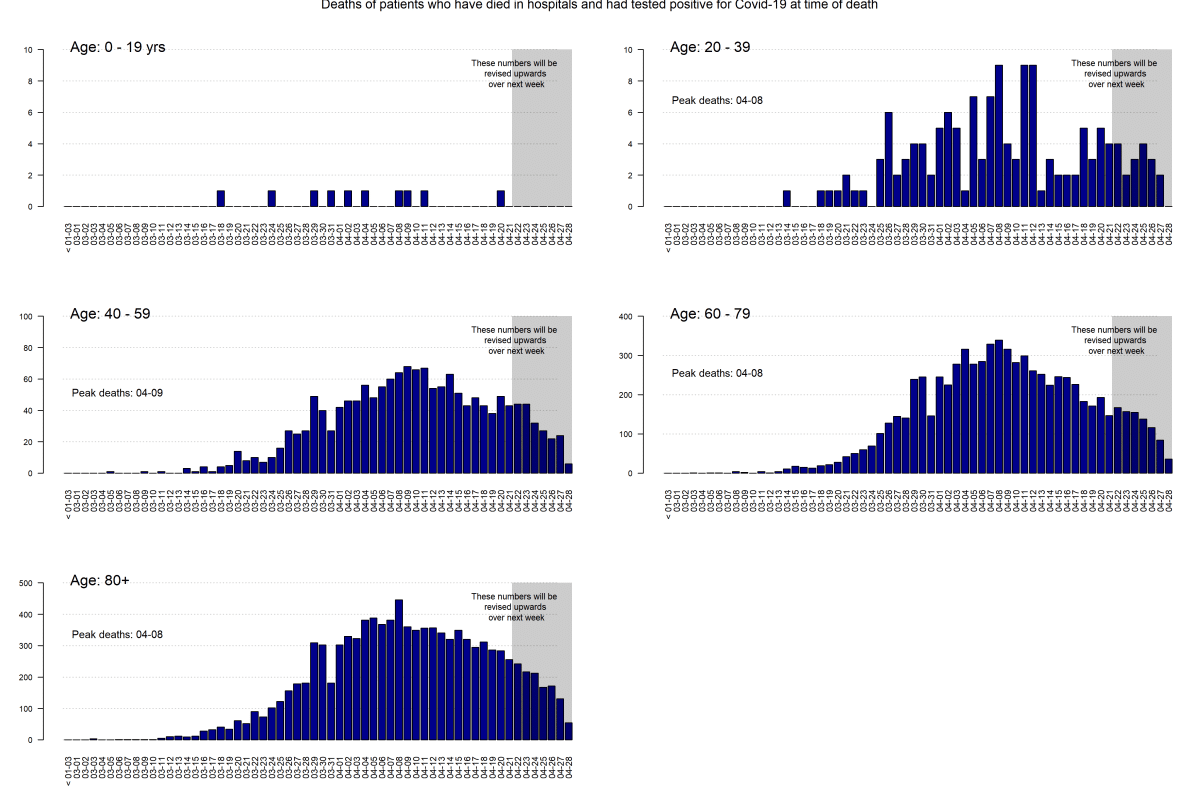
The reporting of deaths by NHS England underestimate those reported by ONS – One reason for this is NHS England’s data does not include deaths reported outside hospitals.
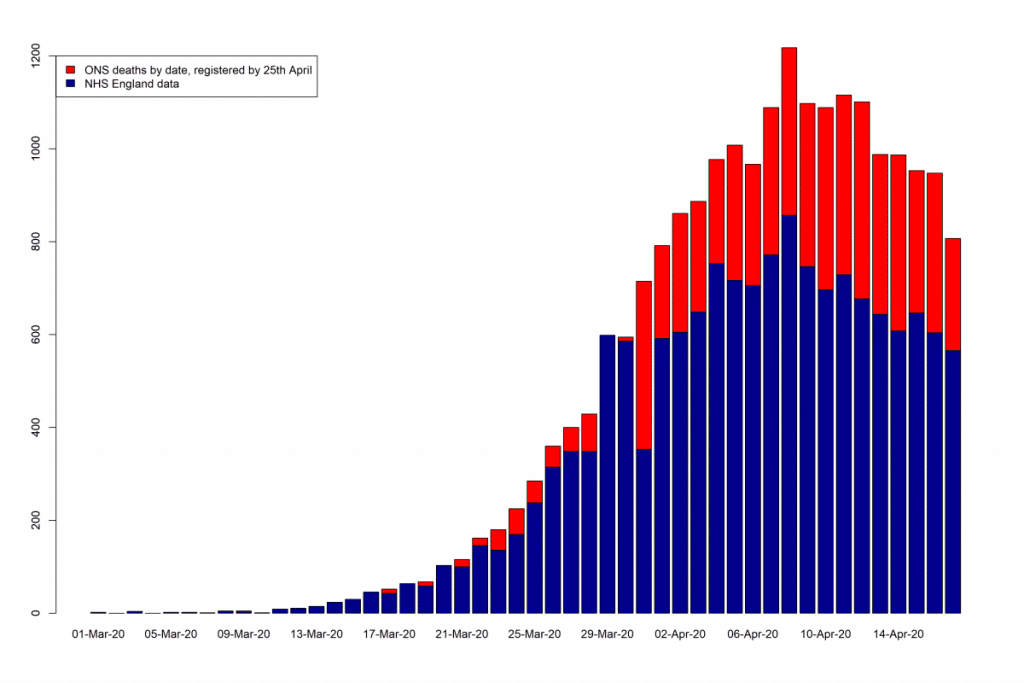
Daily reports generally add more to the previous two days (up to a maximum 300 deaths), and can add back to the previous week’s counts (the grey shaded area in figure 2).
See also:
COVID-19 Death Data in England – Update 17th April
and
Tracking mortality over time
Assessment of Mortality in the Covid-19 outbreak
AUTHORS
Jason Oke is a Senior Statistician at the Nuffield Department of Primary Care Health Sciences and Module Coordinator for Statistical Computing with R and Stata (EBHC Med Stats), and Introduction to Statistics for Health Care Research (EBHC), as part of the Evidence-Based Health Care Programme.
Carl Heneghan is Professor of Evidence-Based Medicine, Director of the Centre for Evidence-Based Medicine and Director of Studies for the Evidence-Based Health Care Programme. (Full bio and disclosure statement here)
Disclaimer: the article has not been peer-reviewed; it should not replace individual clinical judgement, and the sources cited should be checked. The views expressed in this commentary represent the views of the authors and not necessarily those of the host institution, the NHS, the NIHR, or the Department of Health and Social Care. The views are not a substitute for professional medical advice.

